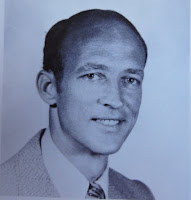Did you ever wonder why we say "how come," meaning "why?" I certainly never had until my 7th-grade science teacher posed the question to us. He didn't answer—he just moved on to how a car engine works. But many times when I say "how come," I think of him. And in all the years since then, I never looked up how the expression evolved—until now.
 |
| Ward's latest puzzle. How come he is so much better than I am at working them? |
Most agree that the use of "how come" in modern language started in the mid-1800s. However, Shakespeare used the phrase over 200 years earlier. Today, we use it interchangeably with "why," but usually in a more informal way.
Have you ever noticed whether you use "how come" or "why" more often? Do you use one in some circumstances but not in others?
Until next time...

